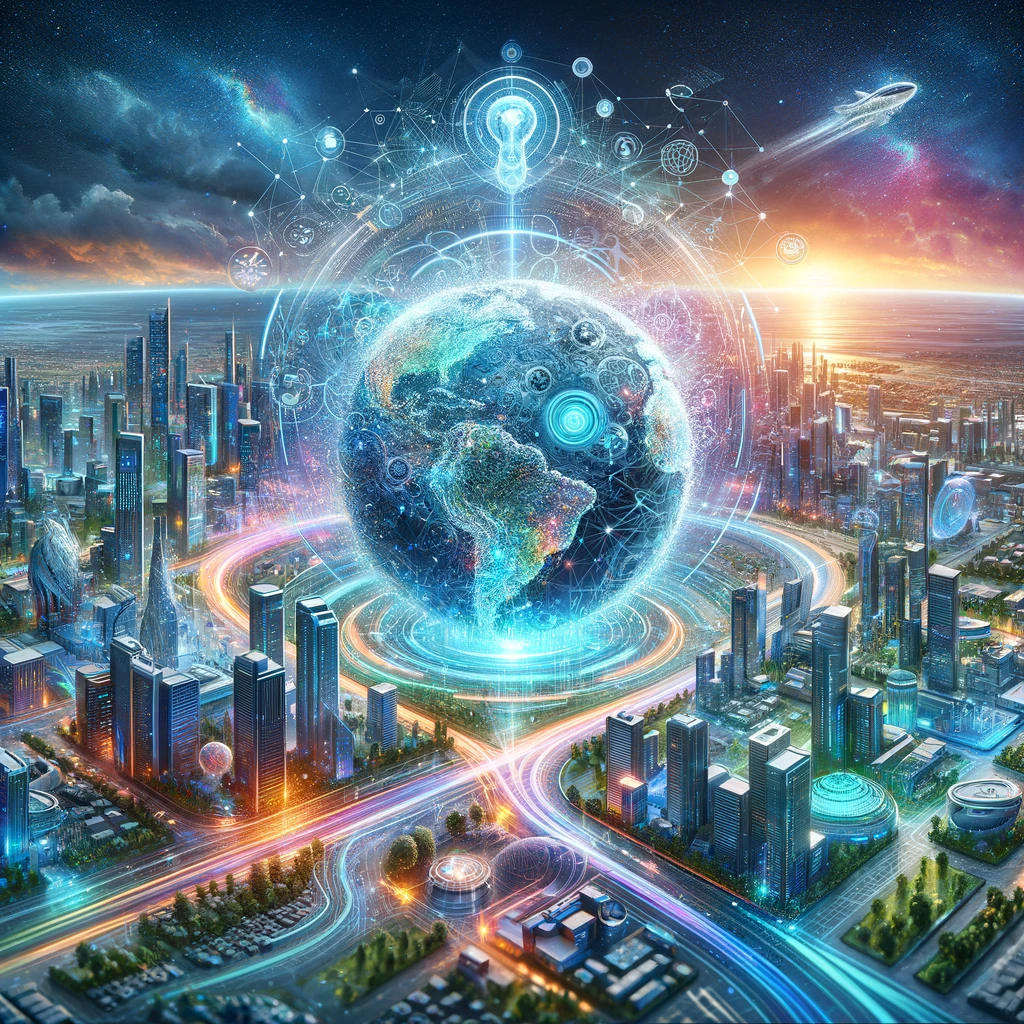
Artificial Intelligence (AI) is not just a buzzword or a fleeting trend; it’s the driving force of a technological revolution. As we stand on the brink of 2033, it’s clear that AI’s domination in the global market was not just predicted; it was inevitable. This post aims to unpack the extraordinary growth of Artificial Intelligence, and how it’s reshaping industries, economies, and our very way of life.
The Seeds of Change
In the early 2020s, AI was already making its mark, from autonomous vehicles to predictive analytics. However, the growth trajectory since then has been nothing short of astounding. The AI market, once valued at a few hundred billion dollars, is now a multi-trillion-dollar titan.
Rapid Advancements in Technology
The exponential growth can be largely attributed to rapid advancements in machine learning algorithms and data processing capabilities. The computational power we dreamed of is now a reality, thanks to quantum computing breaking new grounds, making AI models exponentially more intelligent and efficient.
Integration into Daily Life
AI has seamlessly integrated into the fabric of daily life. From smart homes that predict our needs to AI personal assistants that understand emotions, the technology has become indispensable. The line between human and machine interaction is blurring, as AI becomes more intuitive and empathetic.
Revolutionizing Industries
No industry has been left untouched. In healthcare, AI’s predictive models are preventing diseases, while in finance, they’re disrupting traditional banking with personalized financial advice. Manufacturing has been revolutionized by AI-driven automation, leading to unprecedented efficiency and productivity.
The Economic Impact
The economic impact of AI’s growth is monumental. Job landscapes have shifted, with AI creating new roles while rendering some obsolete. The gig economy has transformed into the ‘AI economy’, where humans and machines collaborate in ways we never thought possible.
Barriers and Breakthroughs
The journey hasn’t been without its barriers. Data privacy concerns, ethical considerations, and the fear of an ‘AI takeover’ have been part of the conversation. But with every challenge, there’s been a breakthrough, with governance and ethical frameworks guiding AI’s development.
Global AI Governance
By 2033, global AI governance has taken shape, with international bodies ensuring that AI’s growth benefits all of humanity. These regulations have not stifled innovation but rather directed it towards more humane and equitable outcomes.
Looking Ahead
As we look to the future, it’s clear that AI’s potential is still untapped. The next decade promises even more transformative changes, with AI at the forefront of solving humanity’s greatest challenges. From climate change to space exploration, AI is not just a tool; it’s our ally.
The Multifaceted Impact of AI
Artificial Intelligence has become the linchpin of personalized experiences. Retail giants use AI for predictive shopping, curating products uniquely for each customer. In entertainment, streaming services employ AI to not only recommend content but to influence production decisions, creating shows and movies that are more likely to capture the audience’s heart.
AI and Sustainability
Sustainability efforts have been bolstered by AI’s predictive capabilities. Smart cities use AI to optimize energy consumption, reduce waste, and manage resources efficiently, leading to a lower carbon footprint. In agriculture, AI-driven precision farming has increased yield and reduced environmental impact, feeding more people with fewer resources.
The Workforce Transformation
The AI revolution has ushered in a new era for the workforce. Repetitive tasks are automated, freeing humans to engage in more creative and strategic roles. Education has adapted, focusing on critical thinking and emotional intelligence, skills that AI has yet to master. Lifelong learning is the new norm, with AI as both the subject and the tool for education.
Healthcare and AI: A New Dawn
In healthcare, AI’s role has been life-changing. AI algorithms assist in diagnosing diseases with accuracy surpassing human experts. Personalized medicine, powered by AI, tailors treatments to individual genetic profiles, leading to better outcomes and fewer side effects.
The Ethical Implications
As AI becomes more prevalent, ethical implications surface. The issue of ‘algorithmic biases’ has led to a surge in research dedicated to making AI fair and unbiased. The concept of “ethical AI” is now a field in its own right, focusing on ensuring AI’s benefits are shared equitably across society.
AI in the Developing World
AI’s growth is not confined to the developed world. Developing nations have leapfrogged traditional stages of technological adoption, using AI to address challenges unique to their contexts. From mobile banking to educational apps, AI is empowering communities in ways previously unimaginable.
The AI Economy
Economically, AI has created a new paradigm. The ‘AI economy’ is not just about the money generated by AI but the value created through its applications. New business models have emerged, where data is a currency, and AI interactions are a commodity.
AI in Governance
Governance has been transformed by AI. Governments use AI for everything from urban planning to social welfare programs. AI helps in detecting fraud, managing public services, and engaging citizens. The transparency and efficiency it offers have the potential to restore public trust in institutions.
The Road Ahead
Looking ahead, we see an AI-enabled future where personalized education through AI could become a fundamental right, healthcare could be universally accessible, and sustainable living could be a reality for all. AI has the potential to not just reflect our world but to reshape it in the image of a better, more equitable society.
In conclusion, the unforeseen growth of AI is not just a narrative of technology and markets; it’s a story of human progress. By 2033, AI will not only dominate the global market but also redefine what it means to live in a technologically advanced society. As we continue on this journey, the intersection of AI and human values will dictate the quality and direction of our collective future.


